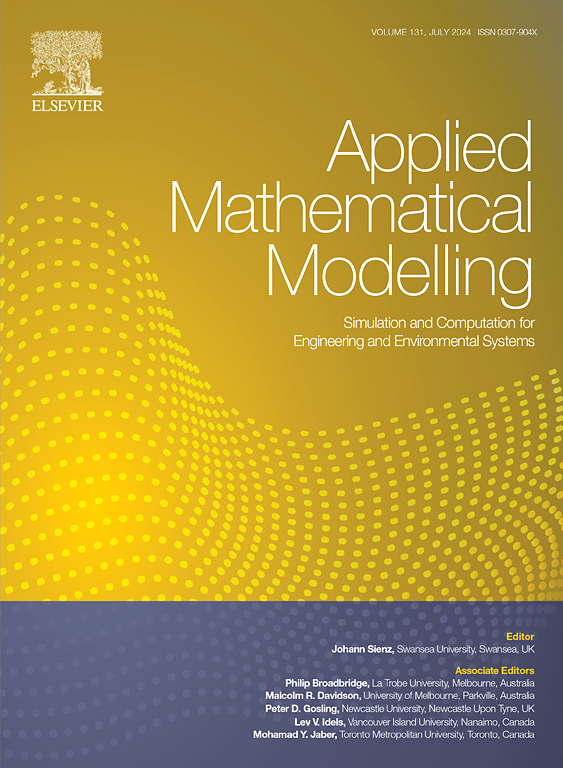利用多通道测量重建横截面轮廓的高级无条件信号处理模型
IF 4.4
2区 工程技术
Q1 ENGINEERING, MULTIDISCIPLINARY
引用次数: 0
摘要
在机械工程中,评估旋转零件几何公差的标准方法是分析零件相对于测量系统的旋转运动。传统的公差符合性测量模型是条件信号处理模型,需要预先确定测量截面的轮廓参数。然而,由于零件的多样性和复杂性,在每次测量过程之前预先确定和设置截面参数非常耗时,在某些情况下甚至无法实现。为应对这一挑战,本文提出了一种先进的无条件信号处理模型,该模型利用多通道测量进行横截面轮廓重建,无需预定义截面参数。该模型可处理多点测量信号,并通过圆周傅里叶展开和近似信号-轮廓变换矩阵准确估计测量截面的轮廓形状和工程中心坐标。然后通过高效的迭代算法重建轮廓并精确定位工程中心。通过严格的理论分析和全面的实验验证,证实了所提模型的计算精度和稳健性。由于其固有的无条件优势,所提出的信号处理模型可实现对旋转零件全寿命的智能监测,不仅能适应各种截面类型并保持稳定,还能显著提高测量效率,确保获得精确、准确的结果。本文章由计算机程序翻译,如有差异,请以英文原文为准。
Advanced unconditional signal processing model for cross-section contour reconstruction using multi-channel measurements
In mechanical engineering the standard method to assess the geometric tolerances of rotational parts is by analysing parts’ rotational motion in relation to the measuring system. Traditional tolerance compliance measurement models are conditional signal processing models that require pre-defined contour parameters of measured sections. However, due to part diversity and complexity, pre-determining and pre-setting the section parameters before each measurement process is very time-consuming and, in some cases, unachievable. To address this challenge, this paper proposes an advanced unconditional signal processing model, which uses multi-channel measurements for cross-section contour reconstruction that operates without predefined section parameters. This model can handle multi-point measurement signals and accurately estimate the contour shape and engineering center coordinates of measured sections through circumferential Fourier expansion and an approximated signal-contour transform matrix. An efficient iterative algorithm then reconstructs the contour and precisely locates the engineering center. The computational accuracy and robustness of the proposed model have been confirmed through rigorous theoretical analysis and comprehensive experimental validation. Due to its inherent unconditional advantage, the proposed signal processing model can achieve intelligent monitoring of rotational parts throughout their entire life, which not only adapts and remains stable across a wide variety of cross-section types but also significantly improves measurement efficiency, ensuring precise and accurate results.
求助全文
通过发布文献求助,成功后即可免费获取论文全文。
去求助
来源期刊

Applied Mathematical Modelling
数学-工程:综合
CiteScore
9.80
自引率
8.00%
发文量
508
审稿时长
43 days
期刊介绍:
Applied Mathematical Modelling focuses on research related to the mathematical modelling of engineering and environmental processes, manufacturing, and industrial systems. A significant emerging area of research activity involves multiphysics processes, and contributions in this area are particularly encouraged.
This influential publication covers a wide spectrum of subjects including heat transfer, fluid mechanics, CFD, and transport phenomena; solid mechanics and mechanics of metals; electromagnets and MHD; reliability modelling and system optimization; finite volume, finite element, and boundary element procedures; modelling of inventory, industrial, manufacturing and logistics systems for viable decision making; civil engineering systems and structures; mineral and energy resources; relevant software engineering issues associated with CAD and CAE; and materials and metallurgical engineering.
Applied Mathematical Modelling is primarily interested in papers developing increased insights into real-world problems through novel mathematical modelling, novel applications or a combination of these. Papers employing existing numerical techniques must demonstrate sufficient novelty in the solution of practical problems. Papers on fuzzy logic in decision-making or purely financial mathematics are normally not considered. Research on fractional differential equations, bifurcation, and numerical methods needs to include practical examples. Population dynamics must solve realistic scenarios. Papers in the area of logistics and business modelling should demonstrate meaningful managerial insight. Submissions with no real-world application will not be considered.
 求助内容:
求助内容: 应助结果提醒方式:
应助结果提醒方式:


